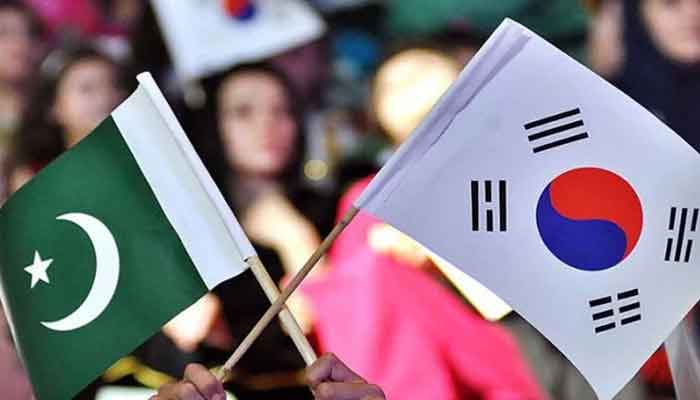Is Pakistan doing enough to attract foreign investments?
There are an estimated 24 Korean companies in Pakistan, working in the chemical or motor-vehicle sectors.
November 23, 2020

As you enter the Korean Consulate in Karachi you can smell the fresh paint on the wall. The doors and windows have been polished, and the floor tiles rebuffed.
For a new visitor it would be hard to imagine that four months back, the building had been overrun with water during flash floods in the city. Back then, Kim Haksung, had just landed in Karachi to take on his new role as the Minister Counsellor. A few days after he arrived, the rains began, slowly, then gained pace.
At the consulate, the basement and ground floor were inundated. Though the damage was not serious, the rainwater had grounded motor vehicles urgently needed to move the staff to a safer place.
As the water was drained out and the city returned to some form of normality, the “second wave” of the coronavirus began to surge through the country.
Karachi has recorded one of the highest test positive rates amongst cities in the country for the last few weeks. This has limited Mr. Haksung’s movements, who has yet to dine out and enjoy Pakistani cuisines in a restaurant.
But the Counsellor has high hopes that, like his country, Pakistan will also be able to control the surge in infections. In fact, the diplomat says that he is ready to share his country’s experience with Pakistan’s government.
Since the start of the pandemic, South Korea has reduced daily infections by focusing on these major areas: mass production of testing kits and aggressive testing and contact tracing.
These efforts were coupled with the willingness of the Korean people to follow measures taken by the government.
Separately, to help Pakistan’s economy during the pandemic, the new Head of Mission is also offering support to Korean companies working in Karachi.
In the last two years, Korean car companies have gradually increased their footprints and market share in Pakistan. At the moment, some of these companies are assembling two car models in the country, which they hope to take up to five in the coming years.
There are an estimated 24 Korean companies in Pakistan, working in the chemical or motor-vehicle sectors. While, the total accumulated direct investment of Korean companies in Pakistan is approximately US $174,420,000.
The number is insignificant, if compared with Korean investment in our neighboring countries.
In the first three quarters of 2020, the Republic of Korea invested in 140 projects in the Chinese coastal province of Jiangsu alone, with funds reaching $970 million.
And, according to the Bangladesh Bank, Seoul is the sixth major Foreign Direct Investment partner for Dhaka, with the accumulated investment of US $1.44 billion as of March.
On the other hand, here in Pakistan, figures show that the FDI fell 50.7% year-on-year in September to $189 million against $383.5 million last year.
So, what are the obstacles to mega investments in our country?
The Korean diplomat says that the “disruption of electric power supplies, terrorism incidents, political instability, non-implementation of incentives and tax refunds are major obstacles to investment” in Pakistan.
The coronavirus pandemic has already affected our industrial output. It’s a rare moment in history when even developed countries are struggling to survive the devastating impact of this virus. Yet, this situation offers a golden opportunity to offer foreign companies better incentives to enter the market.
It is important to take notes of complaints by foreign companies and to address them to boost the economy and create more jobs.











